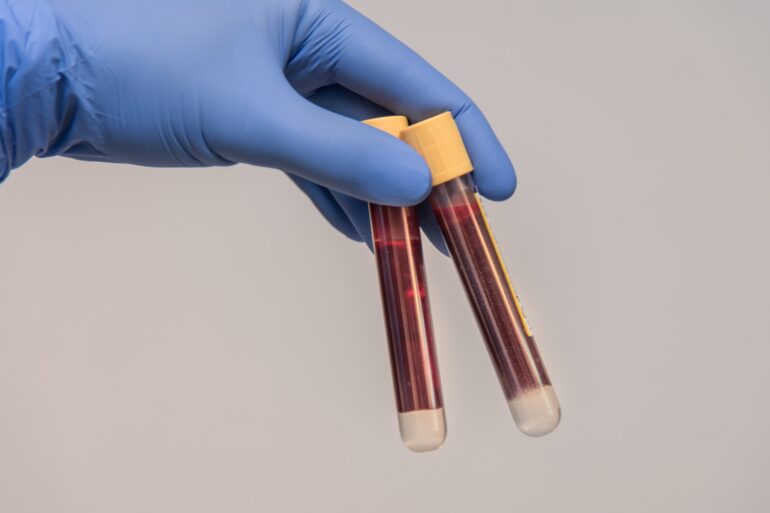TL;DR:
- Researchers at Johns Hopkins Kimmel Cancer Center developed GEMINI, a novel blood test for early cancer detection.
- GEMINI combines genome-wide DNA sequencing with machine learning to identify changes in the genome.
- The test successfully detected over 90% of lung cancers, even in early-stage cases.
- GEMINI’s potential application extends to liver cancer, melanoma, and lymphoma detection.
- It could enable cost-efficient, scalable detection of cancers, but larger clinical trials are needed for validation.
Main AI News:
Cutting-edge blood testing technology is on the horizon, poised to revolutionize cancer detection. A team of researchers at the prestigious Johns Hopkins Kimmel Cancer Center has unveiled their latest innovation that combines genome-wide sequencing of single molecules of DNA with the power of machine learning. This groundbreaking approach, known as GEMINI (Genome-wide Mutational Incidence for Non-Invasive detection of cancer), holds the promise of enabling earlier detection of lung and other cancers.
The GEMINI test follows a comprehensive process that starts with the collection of a blood sample from individuals at risk of developing cancer. From this sample, cell-free DNA (cfDNA) shed by tumors is extracted and subjected to cost-efficient whole genome sequencing. Analyzing single molecules of DNA, researchers pinpoint sequence alterations to obtain mutation profiles across the genome. A specially trained machine learning model is then deployed to identify changes in cancer and non-cancer mutation frequencies within different regions of the genome, effectively distinguishing between individuals with cancer and those without it. The model yields a score ranging from 0 to 1, reflecting the probability of having cancer, with higher scores indicating a greater likelihood.
In a series of laboratory tests, GEMINI demonstrated its remarkable potential when combined with computerized tomography imaging. The test successfully detected over 90% of lung cancers, even in patients with early-stage (stage I and II) disease. The groundbreaking results of this proof-of-concept study were published in the esteemed journal Nature Genetics on July 27.
Dr. Victor Velculescu, a distinguished oncology professor and co-director of the cancer genetics and epigenetics program at the Kimmel Cancer Center, expressed enthusiasm for GEMINI’s potential impact. “This study shows for the first time that a test like GEMINI, incorporating genome-wide mutation profiles from single molecules of cfDNA, in combination with other cancer detection approaches, may be used for early detection of cancers, as well as for monitoring patients during therapy,” he said.
While the primary focus of the study was on detecting lung cancer in high-risk populations, lead author Daniel Bruhm, a graduate student in the human genetics program at the Johns Hopkins University School of Medicine, pointed out that GEMINI also demonstrated altered mutational profiles in cfDNA from patients with other cancers like liver cancer, melanoma, or lymphoma, suggesting its potential broader application.
Developing GEMINI involved a meticulous examination of whole-genome sequences from 2,511 individuals across 25 different cancer types. By identifying distinct mutation frequencies across the genome in various tumor types, the researchers gained valuable insights. For example, lung cancers were found to have an average of 52,209 somatic mutations per genome. The team also identified genomic regions with the highest number of mutations, finding that genome regions with a high frequency of mutations were similar between tumor tissue and blood-derived cfDNA from patients with lung cancer, melanoma, or B cell non-Hodgkin lymphoma.
The researchers further evaluated GEMINI’s potential by assessing its ability to detect sequence alterations in cfDNA from 365 individuals in a prospective observational cohort (LUCAS), including high-risk individuals for lung cancer. Notably, GEMINI scores were consistently higher in people with cancer than in those without it. The study also explored combining GEMINI with DELFI (DNA evaluation of fragments for early interception), a previously developed test that detects changes in the size and distribution of cfDNA fragments across the genome. This combination proved highly effective in detecting early-stage lung cancer, even in cases where GEMINI alone missed certain cancer samples. When combined with DELFI, GEMINI correctly identified cancers in 91% of the cases from the LUCAS cohort.
Excitingly, GEMINI showed promise beyond cancer detection, as it detected abnormalities in cfDNA mutation profiles in patients who did not have any detectable tumors at the time of blood collection. This could lead to early detection of lung cancer years before standard diagnoses.
The study also revealed GEMINI’s potential in distinguishing between subtypes of lung cancers and detecting early liver cancers. Furthermore, the test’s ability to track changes in GEMINI scores during lung cancer drug treatment opens the door to using it for monitoring patients throughout therapy.
Researchers, including Dr. Rob Scharpf, an associate professor of oncology at the Kimmel Cancer Center, hailed the combination of genome-wide GEMINI mutation analyses and DELFI fragmentation analyses as a groundbreaking advancement that could pave the way for cost-efficient and scalable cancer detection. However, they acknowledge that larger clinical trials are necessary to validate the tool before it can be made available for widespread clinical use.
Conclusion:
The development of GEMINI represents a significant advancement in the field of cancer detection. The combination of genome-wide sequencing and machine learning allows for more accurate and early identification of various cancers, especially lung cancer. This breakthrough has the potential to revolutionize the market by providing a reliable and cost-effective tool for cancer screening and monitoring during therapy. However, further validation through larger clinical trials will be crucial to establish its widespread clinical use and market adoption.

